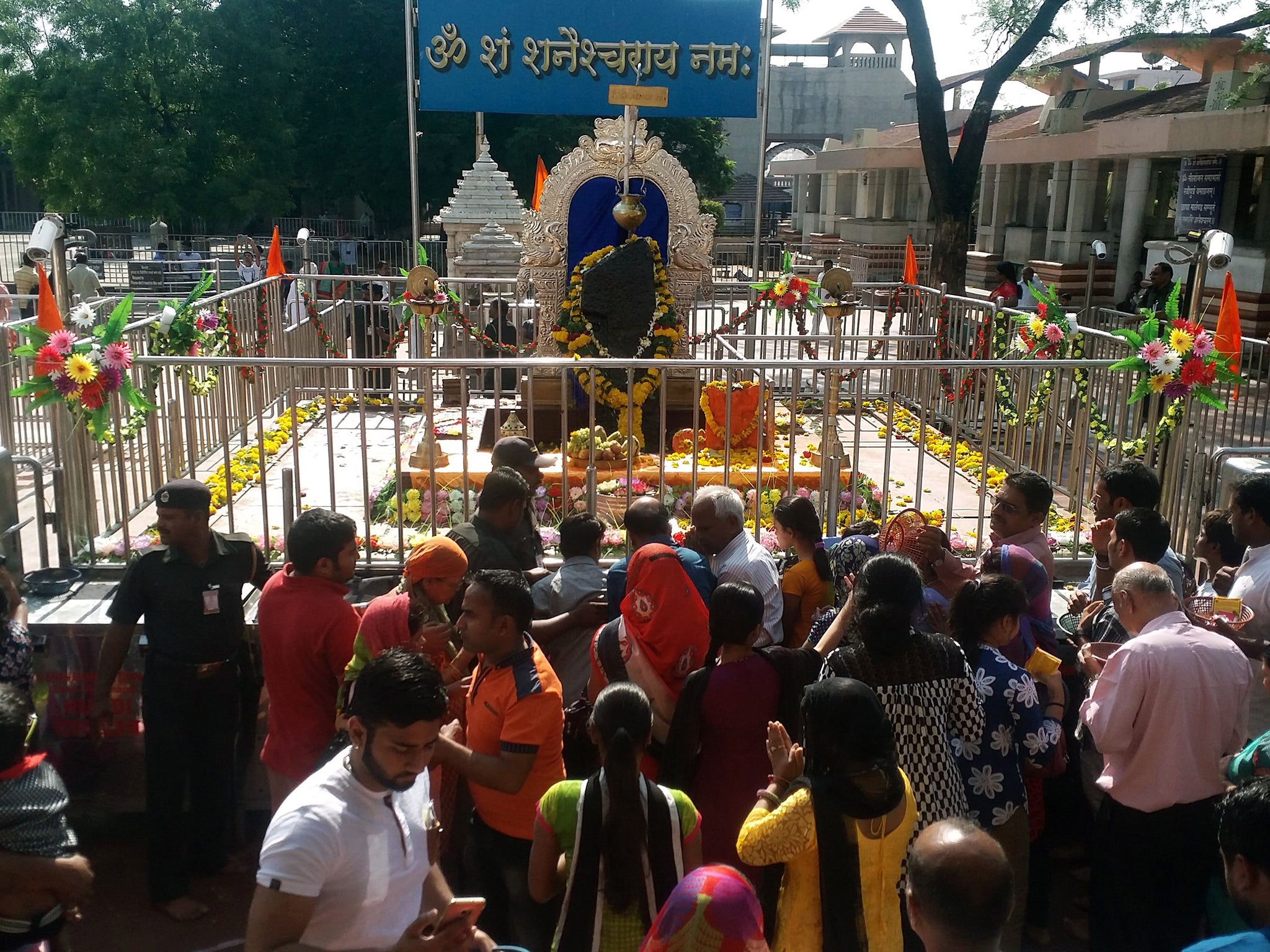Allowing women to worship in Indian temple will lead to rape, claims religious leader
Shankaracharya Swaroopanand makes comments just days after Mumbai court rules in favour of women's right to worship

Your support helps us to tell the story
From reproductive rights to climate change to Big Tech, The Independent is on the ground when the story is developing. Whether it's investigating the financials of Elon Musk's pro-Trump PAC or producing our latest documentary, 'The A Word', which shines a light on the American women fighting for reproductive rights, we know how important it is to parse out the facts from the messaging.
At such a critical moment in US history, we need reporters on the ground. Your donation allows us to keep sending journalists to speak to both sides of the story.
The Independent is trusted by Americans across the entire political spectrum. And unlike many other quality news outlets, we choose not to lock Americans out of our reporting and analysis with paywalls. We believe quality journalism should be available to everyone, paid for by those who can afford it.
Your support makes all the difference.A religious leader in India has said allowing women into a temple in Maharashtra will lead to an increase in rape.
Shankaracharya Swaroopanand's comments come just days after a 400-year long ban was overturned, allowing women access to the Shani Shingnapur temple shrine.
Previously, the temple’s board maintained a tradition of only allowing girls before puberty and menopausal women into the hilltop shrine, believing menstruating women to be impure.
Mr Swaroopanand told reporters: “Women should not feel triumphant about visiting the sanctum sanctorum of Shani Shingnapur temple in Maharashtra,” India’s the Tribune said.
“They should stop all the drum beating about what they have done. Worshipping Shani will bring ill luck to them and give rise to crimes against them like rape,” claimed the 94-year-old.
Last week the Mumbai High Court ruled in favour of permitting women to worship wherever men are allowed to.
Chief Justice D.H. Waghela and Justice M.S. Sonak said: “There is no law that prevents entry of women in any place. If you allow men, then you should allow women also. If a male can go and pray before the deity, why not women? It is the State government’s duty to protect the rights of women,” the Hindu reported.
“If it is the sanctity of the deity that you are worried about, then let the government make such a statement. Under the Maharashtra Hindu Place of Worship (Entry Authorisation) Act, 1956, if any temple or person prohibits any person from entering a temple, then he or she faces a six-month imprisonment,” the court said.
As a result, the temple board were forced to open their doors to women, and other temples across the country which don’t currently permit female worshippers are facing increasing pressure to do the same.
Communist party leader Brinda Karat criticised Mr Swaroopanand’s comments, saying: “It is so much obscure, reactionary and retrograde thinking,” the New Indian Express reported.
“Will the Shankaracharya answer that all these years women were not allowed into the temple so was there no problem that women faced?
“This thinking itself is far removed from reality, India’s Constitution, from the people’s experiences that it just has to be rejected with contempt,” the politician said.
The people who live in the small village of Shani Shingnapur believe they are protected by the Hindu deity Shani, who is worshipped at the temple.
The village is famous for having barely any front doors - even the village bank remains unlocked – because locals have such faith Shani will not allow thieves to go unpunished.
Join our commenting forum
Join thought-provoking conversations, follow other Independent readers and see their replies
Comments